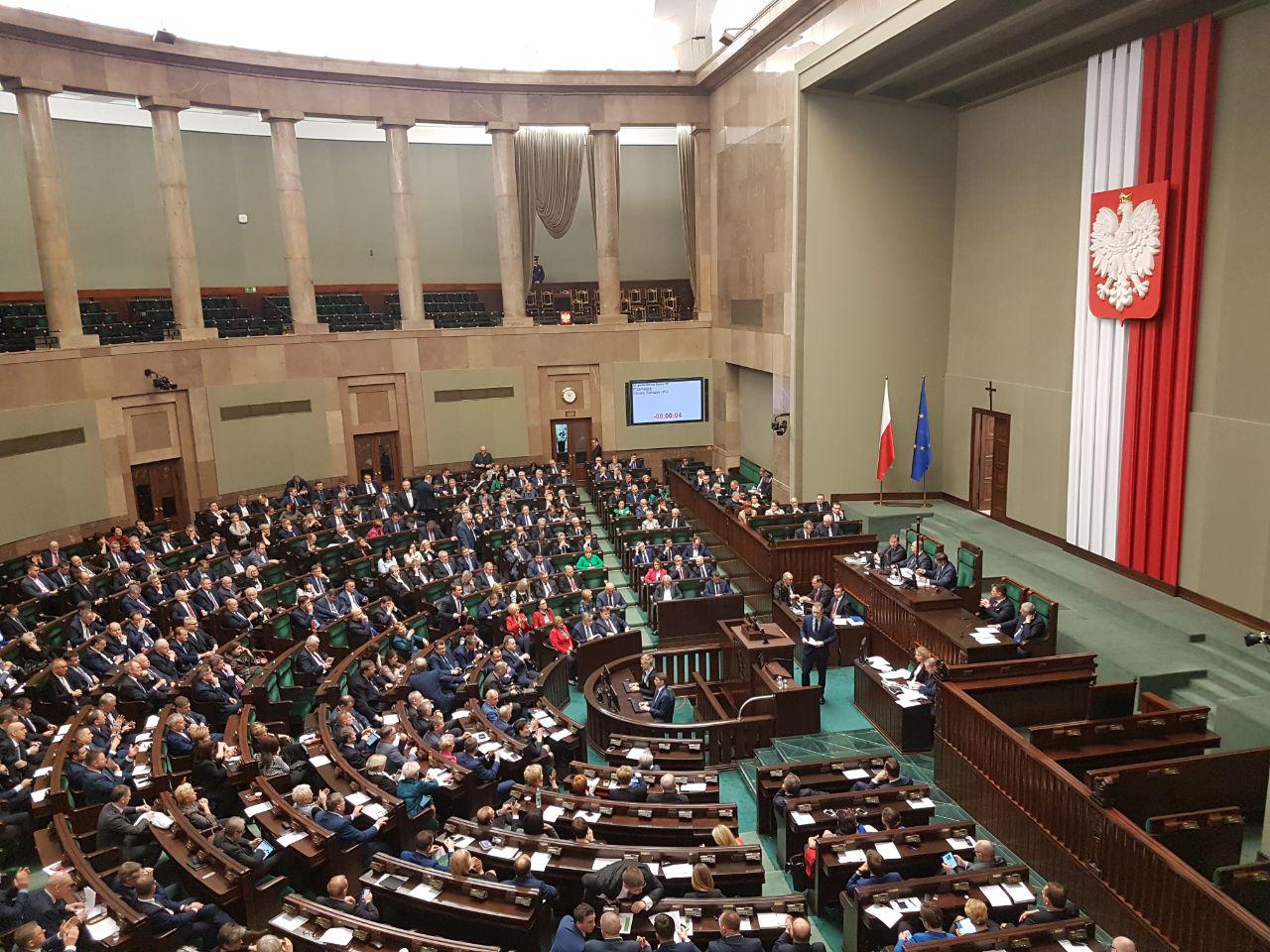What goes in Poland on 17th of April.
Polish MEPs and MPs against EU methane regulation
The Sejm opposed the EU methane regulation in its current form, because according to the chamber it puts energy security at risk.
444 MPs voted in favor of a resolution on the EU methane regulation, which imposes penalties on mines exceeding the established limit of methane emissions. 450 MPs took part in the vote, 444 voted for the resolution, 5 voted against (four MPs from Civic Coalition – biggest opposition club, 1 non-affiliated), one MP abstained.
Poles argue that these regulations are irrational and „in the proposed form, impose unreasonable and incompatible with available technological and economic knowledge excessive requirements for methane emissions from coal mines, which will lead to a socio-economic crisis in the mining industry, which puts hundreds of thousands of jobs at risk,” the MPs claim.
The methane regulation of the European Parliament and the Council is expected to enter into force in 2027, introducing an emission limit of 5 tons of methane per a thousand tons of coal mined other than coking coal and three tons from 2031. The European Parliament will vote on this issue on 8 May.
Polish MEPs, from different parties, are fighting to relax these strict regulations.
Wednesday’s meeting of representatives of political groups did not resolve the conflict, and another is scheduled for next week. Polish MEPs maintain this fight is about the energy security of our country and claim two issues are especially important.
As for coking coal, Polish MEPs are pushing for its complete exclusion from the methane regulation, as this raw material is crucial in the process of steel production, and Poland is the only producer of coking coal in the EU.
The second demand is crucial for Polska Grupa Górnicza (PGG, a coal mining company – ed.) because it concerns the mitigation of the standard of 0.5 tons of methane emissions per thousand tons of coal mined set by the Commission. „If this regulation comes into force in such a restrictive form, three quarters of the PGG mines would be closed in 2027,” said Izabela Kloc, MEP.
Radio News Agency / Jacek Perzyński/ ISB News / Teresa Wójcik / Wojciech Jakóbik
Chinese Embassy in Poland criticizes Prime Minister for comments on Ukraine and Taiwan
The Chinese Embassy in Warsaw has condemned a statement Poland’s PM Mateusz Morawiecki made about Taiwan and Ukraine during his visit to Washington.
„It is impossible today and tomorrow to protect Ukraine by saying that Taiwan is not our business. We must support Ukraine if we want Taiwan to remain independent. If Ukraine is conquered, China could attack Taiwan the next day. I see here a very large relationship, a lot of dependence between the situation in Ukraine and the situation in Taiwan and China,” said Mateusz Morawiecki during a visit to the Washington think tank Atlantic Council.
It did not take long for the Chinese embassy to respond. „On April 13, a Polish government official during a meeting with representatives of an American think tank made a speech during which he openly compared the issues of Taiwan and Ukraine, and made an unfounded claim that if Ukraine loses the war, mainland China will attack Taiwan the next day. For this reason, China expresses strong dissatisfaction and strong opposition, ” the statement said.
The Chinese continue to argue that Taiwan is part of China and its fate is an internal matter for Beijing. „We urge the Polish official involved in this case to fully understand the high sensitivity of the Taiwan issue, conscientiously adhere to the one-China policy, exercise caution in actions and words regarding the Taiwan issue, and avoid disrupting Chinese– Polish relations,” the statement reads.
The Chinese embassy did not name the „certain official” as the Prime Minister of Poland in any part of the message.
Wojciech Jakóbik
KGHM asks for green light for small atom from America
KGHM has submitted an application to the Ministry of Climate and Environment for a decision-in-principle on the construction of a small modular nuclear power plant (SMR) in Poland.
„The decision in principle is the first decision in the system of administrative permits for investments in nuclear energy facilities in Poland, which an investor can apply for. Obtaining the decision in principle is an expression of the state’s support for the implementation of a given project and entitles one to apply for a number of subsequent administrative decisions such as the location decision or a building permit,” KGHM explained. Until the end of the administrative procedure, KGHM will not provide information on the progress of the procedure and the details of the application.
KGHM reminds that it is involved in the development of nuclear energy in Poland, i.e. construction of small modular nuclear reactors (SMR). In 2022, KGHM signed a preliminary agreement with NuScale Power, LLC, an American nuclear technology provider, as the first step in the implementation of SMR technology in the KGHM group.
KGHM / Wojciech Jakóbik









